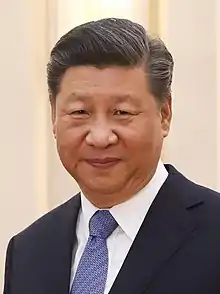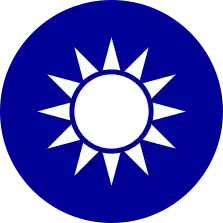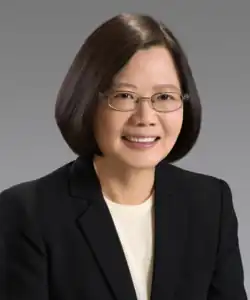Portal:China
This article is issued from Wikipedia. The text is licensed under Creative Commons - Attribution - Sharealike. Additional terms may apply for the media files.
Portal maintenance status: (October 2020)
|

The region that is now China has been inhabited since the Paleolithic era. The earliest Chinese dynastic states, such as the Shang and the Zhou, emerged in the basin of the Yellow River before the late second millennium BCE. The eighth to third centuries BCE saw a breakdown in Zhou authority and significant conflict, as well as the emergence of Classical Chinese literature and philosophy. In 221 BCE, China was unified under an emperor, ushering in more than two millennia in which China was governed by one or more imperial dynasties, including the Han, Tang, Ming and Qing. Some of China's most notable achievements—such as the invention of gunpowder and paper, the establishment of the Silk Road, and the building of the Great Wall—occurred during this period. The Chinese culture—including languages, traditions, architecture, philosophy and more—has heavily influenced East Asia during this imperial period. China is a unitary one-party socialist republic led by the CCP. It is one of the five permanent members of the UN Security Council and a founding member of several multilateral and regional organizations such as the Asian Infrastructure Investment Bank, the Silk Road Fund, the New Development Bank, and the RCEP. It is also a member of the BRICS, the G20, APEC, and the East Asia Summit. China ranks poorly in measures of democracy, transparency, and human rights, including for press freedom, religious freedom, and ethnic equality. Making up around one-fifth of the world economy, China is the world's largest economy by GDP at purchasing power parity, the second-largest economy by nominal GDP, and the second-wealthiest country. The country is one of the fastest-growing major economies and is the world's largest manufacturer and exporter, as well as the second-largest importer. China is a nuclear-weapon state with the world's largest standing army by military personnel and the second-largest defense budget. (Full article...)
|
Extended content | ||
|---|---|---|
Featured articles
Featured lists
Good articles
Featured pictures
Featured portalsA-Class articlesFeatured topics
|
 |
Here are some tasks awaiting attention:
|


The General Secretary of the Chinese Communist Party, officially General Secretary of the Central Committee of the Communist Party of China, is head of the Chinese Communist Party and the highest-ranking official within China, a standing member of the Politburo and head of the Secretariat. The officeholder is usually considered the paramount leader of China.
According to the Constitution, the General Secretary serves as an ex officio member of the Politburo Standing Committee, China's de facto top decision-making body. Since the early 1990s, the holder of the post has been, except for transitional periods, the Chairman of the Central Military Commission, making the holder the Commander-in-chief of the People's Liberation Army.
The current General Secretary is Xi Jinping (picture), who took the office at the 18th National Congress on 15 November 2012.


The President of the Republic of China is the head of state of the Republic of China (ROC).
The Constitution names the president as head of state and commander-in-chief of the Republic of China Armed Forces (formerly known as the National Revolutionary Army). The president is responsible for conducting foreign relations, such as concluding treaties, declaring war, and making peace. The president must promulgate all laws and has no right to veto. Other powers of the president include granting amnesty, pardon or clemency, declaring martial law, and conferring honors and decorations.
The current President is Tsai Ing-wen (picture), since May 20, 2016. The first woman to be elected to the office, Tsai is the seventh president of the Republic of China under the 1947 Constitution and the second president from the Democratic Progressive Party (DPP).
 |
You are invited to participate in WikiProject China, a WikiProject dedicated to developing and improving articles about China. ~~~~ |
粵語 / 广东话 (Cantonese) •
古文 / 文言文 (Classical Chinese) •
赣语 (Gan) •
Hak-kâ-fa (Hakka) •
قازاق تىلى (Kazakh) •
中文 / 普通话 (Mandarin) (Now unable to access in
China Mainland because of the GFW) •
闽东语 (Min Dong) •
闽南语 (Min-nan) •
བོད་ཡིག (Tibetan) •
ئۇيغۇرچە (Uyghur) •
吴语 (Wu) •
Sawcuengh (Zhuang)
The following Wikimedia Foundation sister projects provide more on this subject: